Performing Arts is incredibly important within education because it can make a profound difference to the personal as well as the academic and professional development of the student. The overarching aim of Performing Arts at the UTC is to broaden participation in Performing Arts within Tower Hamlets. London is one of the most bustling centres of culture in the world and ample opportunities exist for our students, and our job is to help them access this world.
The subject is very well suited for vocational training because it is project based and provides experience of a large range of roles within the industry. Our ‘why’ for teaching performing arts is embedded in curriculum rationale as we aim to introduce students to the professional world of performing arts and production. The desired result is to provide students, who may have little knowledge of these sectors, with a ‘professional’ experience in theatre.
In our department, Performing Arts is intimately connected to the subject of English, both of which are taught from KS4. Our aim when teaching Performing Arts, or pursuing performance or dramatic reading in English, is to instil confidence in oracy and to give students a voice to explore contemporary issues.
Following KS4, the ideal outcome is for our students to enrol onto our KS5 UAL Diploma in Performing Arts. The UAL qualification is designed to harness the creative skills developed on the BTEC (or similar courses) and explore and develop these skills and provide a transition to more specialised study of Performing Arts.
What will students learn?
KS4
BTEC Performing Arts (equivalent to one GCSE)
In Y10 Performing Arts we believe it is important to first learn substantive Acting/Production skills and vocabulary including: warmup games, rehearsal techniques, gesture, voicework, basic production skills, the repertoires of different practitioners and styles (including Bertolt Brecht and Greek Tragedy) and different stage types. Learning rehearsal etiquette is important for the learning of space and environment (‘Space and Environment’ is the ‘S’ in the Mulberry UTC STAR aims), as it develops a culture of professionalism and respect. Following this the students can learn rehearsal skills and then refine disciplinary performance and devising skills.
The text and practitioner styles become gradually more challenging in terms of theme and language throughout the course. For example, we will teach Stanislavsky and Naturalism first because it is accessible and represents the most recognisable style of acting, the style which is ubiquitous in modern culture (most TV dramas and Film are ‘naturalistic’).
Following this we will move on to Brecht, which is a bit more challenging for students due to his more expressionistic approach (‘breaking the fourth wall’ etc) and political theatre because there are the possibilities to learn about the cultural and historical context and how that manifested itself in theatre, which will open a whole new area of knowledge for most students. Lastly, the students will make synoptic links to research content and rehearsal skills in relation to both practitioners and each component.
Students will take part in a variety of different industry workshops and visits. Past visits and residencies have included the Globe Theatre and the National Theatre. Students will learn about all aspects of theatre including production, performance and administration. This is not only done to allow students to complete the required tasks of the exam board, but to also gain valuable industry experience preparing them to enter the industry should they wish to.
How do we assess students and help them to improve?
We will revisit substantive and disciplinary knowledge throughout the course, but especially immediately prior to assessment at the end of each component. This will be through direct questioning and the ‘Three Rs’ of STAR; Repetition, Rehearsal and Retrieval. Performing Arts is a practical subject, so practically playing drama games and rehearsing and trying techniques will build understanding of techniques and develop muscle memory of how to progress and succeed in their performances. The students will revisit key terminology and disciplinary knowledge of the subject periodically.
Students will have the opportunity to respond to feedback after every lesson as students will receive oral feedback from staff and peers allowing them to create the required coursework. Students are also given a 7-day window to respond to feedback on written work before it must be sent off to the exam board.
Students will take part in a skills and subject knowledge audit at the beginning of each term to ensure key words and skills are always being used. Students are also encouraged to use these skills and key words in all verbal and written tasks, promoting good oracy and understanding of key subject terminology.
How will we ensure that the needs of SEND learners and high achieving learners are met?
Recent studies suggest that Performing Arts stimulates the motor neuron signals for movement – so it can be beneficial for students with SEND conditions such as ADHD. In lesson, students learn practically by moving; acting, building/painting sets. In our lessons students are not confined to chairs so they are free to learn lines etc whilst moving around the space.
We adapt our practice to ensure learners of all levels of confidence have their needs met. We use scaffolded handouts, sentence stems etc (this is part of ‘Adapted Practice’ the ‘A’ in our STAR aims). A TA will be used to assists learners (primarily EHCP and EAL students) to understand the tasks, decode lengthy text and to respond to written tasks.










